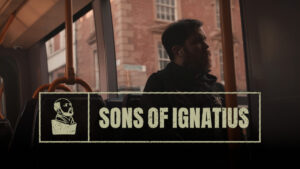Week 1: Stillness exercise

Stand on one leg and extend your left arm upwards in the shape of the spout of a teapot. Say to yourself out loud three times, first in Hebrew, then in Greek, and finally in Latin: “What on earth am I doing this for? It is ludicrous.”
Now do something perfectly normal. Sit in the back of the bus over the engine where it’s warmest in cold weather and stare out the window. Put your coffee-cup into the CD tray of your computer at work, and shuffle through the best photomontages of the week on MSN, catwalks and atrocities. Make interlocking circles on the counter of the bar you’re perched at with the bottom of your pint glass. Start walking the pier, and give up half-way for no good reason. Watch the children in the playground where you played as a child, but not for too long. Otherwise parents will ring the police.
It is not about robes. It is not about gongs. It is not about chanting matins or mantras. The time is never right and the place is never perfect. Even the most righteous of rites can deteriorate into trickery and mere technique, for prayerfulness, which fumigates the wistful list above, is always, by definition, a precarious state. We can never coincide completely with ourselves, because, if and when we did, we would be with God and not in Christ, in the cold mosaic of eternity and not in the wet fresco of time.
But that is not necessarily bad news, and, if it is, it is also intermittently good news, even a kind of gospel truth, because it signals an event of – humane meaning, hurtful and healing at the same moment, in which the two conjunctions, ‘and’ and ‘but’, are not at all opposed. They are interchangeable. We don’t consume the moment with the expert relish of the connoisseur in the manner of what has come to be called mindfulness, cleansing an educated palate with shots of sorbet between exquisite courses. Instead, we live in the cascade of the tenses, past, present, and future imperfect, and in the cataracts of the three grammatical moods, the indicative and the conditional and the imperative.











